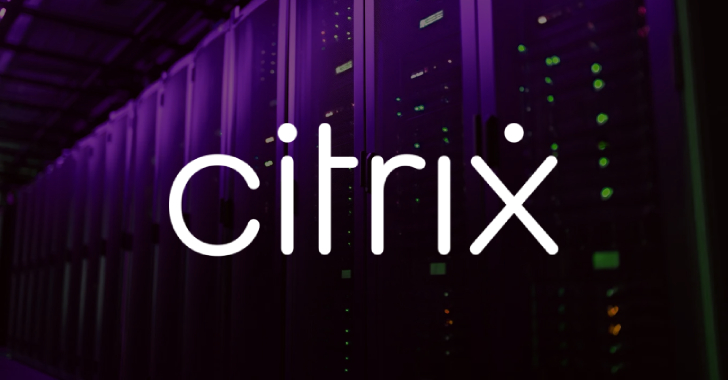
Regulatory Compliance Assessments for Emerging Genetic Data Policies
In an era where science and technology continue to push the boundaries of what’s possible, the management and protection of genetic data have become paramount. From personalized medicine to ancestry tracing services, the use of genetic information has expanded exponentially. With this growth comes the need for robust regulatory compliance assessments to ensure that this sensitive data is handled responsibly and ethically. In this article, we’ll delve into the importance of regulatory compliance assessments for emerging genetic data policies, exploring the current landscape and potential future developments.
The Significance of Genetic Data
Genetic data, comprising an individual’s unique DNA profile, holds immense potential for various fields, including healthcare, research, and even entertainment. It allows for personalized medical treatments, risk assessments for hereditary diseases, and the fascinating world of ancestry exploration. However, the inherent value of this data also poses significant ethical and privacy concerns.
As genetic data becomes more accessible and widely used, governments and regulatory bodies worldwide are stepping in to establish guidelines and policies to safeguard individuals’ rights and ensure the responsible use of this information. These emerging genetic data policies aim to strike a delicate balance between advancing scientific research and protecting the privacy and security of individuals.
The Evolving Regulatory Landscape
The regulatory landscape surrounding genetic data is a complex and ever-evolving one. Different countries and regions have varying laws and regulations, making it challenging to navigate the global genetic data ecosystem. However, there are several common principles and regulations that are gaining prominence:
- Informed Consent: One fundamental principle is obtaining informed consent from individuals before collecting and using their genetic data. This ensures that individuals are aware of how their data will be used and have the opportunity to opt in or out.
- Data Security: Ensuring the security of genetic data is paramount. Regulations often require robust encryption, access controls, and safeguards against data breaches to protect this sensitive information from unauthorized access.
- Data Ownership: Determining who owns genetic data is a complex issue. Some policies consider individuals as the rightful owners, while others argue that research institutions or companies that collect the data also have legitimate interests.
- Data Sharing: Balancing the sharing of genetic data for research and healthcare purposes with privacy concerns is an ongoing challenge. Many policies are emerging to regulate how genetic data can be shared and with whom.
- Anti-discrimination Laws: Concerns about genetic discrimination have led to the adoption of anti-discrimination laws in some regions. These laws prohibit employers, insurers, and others from using genetic information to discriminate against individuals.
- International Collaboration: In an increasingly interconnected world, international collaboration on genetic data policies is crucial. Harmonizing regulations can streamline data sharing for research and healthcare purposes while maintaining ethical standards.
The Role of Regulatory Compliance Assessments
With the emergence of these complex genetic data policies, organizations, whether in healthcare, research, or commercial sectors, must conduct regulatory compliance assessments. These assessments serve several vital purposes:
- Legal Compliance: Organizations need to ensure that they adhere to the specific genetic data policies and regulations relevant to their jurisdiction. Failure to comply can result in legal consequences, including fines and reputational damage.
- Ethical Considerations: Beyond legal obligations, organizations should assess their practices from an ethical standpoint. Genetic data, with its potential for sensitive information, demands a higher level of ethical responsibility.
- Risk Mitigation: Assessments help identify potential risks and vulnerabilities in an organization’s genetic data handling processes. By pinpointing these areas, organizations can take proactive measures to mitigate risks and enhance data security.
- Data Management: Proper compliance assessments also ensure that organizations have effective data management practices in place. This includes data encryption, access controls, and data retention policies to protect genetic data throughout its lifecycle.
- Transparency: Demonstrating transparency in data handling practices builds trust with individuals whose genetic data is being collected. Compliance assessments help organizations communicate their policies and practices clearly to stakeholders.
- Continuous Improvement: Compliance assessments should not be a one-time activity but an ongoing process. They allow organizations to adapt to evolving genetic data policies and technologies, ensuring that they remain in compliance as the landscape changes.
Challenges in Regulatory Compliance Assessments
Conducting regulatory compliance assessments for genetic data policies is not without its challenges. Here are some of the key hurdles organizations may face:
- Complexity: The sheer complexity of genetic data policies, which can vary greatly by region and purpose, can make compliance assessments daunting. Organizations must stay informed about the latest developments and adapt their practices accordingly.
- Resource Allocation: Compliance assessments require time, expertise, and resources. Smaller organizations may struggle to allocate these resources effectively, potentially putting them at risk of non-compliance.
- Data Security: Ensuring data security and protection while complying with regulations can be challenging. Striking the right balance between data sharing for research and safeguarding individual privacy remains a significant hurdle.
- Changing Landscape: Genetic data policies are continuously evolving to address emerging ethical and technological challenges. Organizations must remain agile and adapt to these changes to maintain compliance.
- International Operations: Organizations operating across borders face the added complexity of navigating different genetic data policies in various regions. Harmonizing practices to meet these diverse requirements can be demanding.
The Future of Genetic Data Policies and Compliance Assessments
As technology advances and our understanding of genetics deepens, genetic data policies will continue to evolve. Here are some potential future developments in this field:
- AI and Genetic Data: The integration of artificial intelligence (AI) into genetic research and healthcare will raise new ethical and regulatory questions. Assessments will need to consider the responsible use of AI algorithms in analyzing genetic data.
- Blockchain for Genetic Data: Blockchain technology has the potential to enhance the security and transparency of genetic data transactions. Compliance assessments may involve verifying the use of blockchain for data integrity.
- Global Standardization: International collaboration may lead to more standardized genetic data policies, making it easier for organizations to navigate the regulatory landscape across borders.
- Greater Emphasis on Privacy: With growing concerns about data privacy, genetic data policies may place even greater emphasis on protecting individual privacy rights, including stringent consent requirements and data anonymization.
- Ethical AI Frameworks: The development of ethical frameworks for AI algorithms used with genetic data could become a significant component of compliance assessments.
- Consumer Rights: As individuals become more aware of the value of their genetic data, consumer rights and data ownership may take center stage in genetic data policies.
In conclusion, as genetic data becomes increasingly integrated into healthcare, research, and commercial services, regulatory compliance assessments are essential to ensure responsible and ethical data handling. Navigating the complex landscape of emerging genetic data policies presents challenges, but organizations that invest in compliance assessments will not only meet legal requirements but also gain the trust and confidence of individuals entrusting them with their genetic information. Looking ahead, the evolution of genetic data policies will demand ongoing vigilance and adaptability to maintain compliance in an ever-changing landscape.
Contact Cyber Defense Advisors to learn more about our Regulatory Compliance Assessments solutions.





